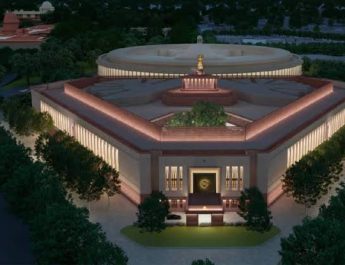From Our Bureau
NEW DELHI: The Supreme Court on Friday refused to halt the Jharkhand High Court proceedings against Chief Miniter Hemant Soren on the PILs seeking a CBI/ED probe into the alleged grant of mining leases and transfer of funds into the shell companies.
A vacation bench of Justices J K Maheshwari and Hima Kohli told the Jharkhand government which filed the petition to approach the High Court since it had already upheld the maintainability of the PIL against Soren on the directive of the Supreme Court.
The Jharkhand government moved the top court challenging a division bench order of the High Court, where it declined to entertain the state’s objection to the acceptance of documents in a sealed cover.
“We cannot look at it in a piecemeal way. High Court has already decided what we had asked them to,” the bench said, ordering to list the case before an appropriate bench after the summer vacation.
During the hearing, the top court noted that on May 13, the High Court decided to hear preliminary objections to the maintainability of the petitions and clarified that it has already gone into the merits of the allegations.
Last month, the apex court had directed the Jharkhand High Court to decide on the maintainability of the PILs. The top court was informed that there were PILs before the High Court, where one of the PILs sought an ED investigation pertaining to alleged offences arising out of the disbursement of MGNREGA funds.
The other sought a probe into the alleged transfer of money by the Soren family to certain companies. The third PIL sought sanctioning prosecution of the Chief Minister for obtaining mining leases under his own name. Therefore, he is allegedly liable to be charged under the Prevention of Corruption Act.
The Jharkhand High Court has tagged these three PILs together. The Jharkhand government has sought the dismissal of the PILs on grounds of maintainability. The state government challenged the decision of the High Court to accept the documents produced by the ED in a sealed cover, overruling the state government’s objections.





